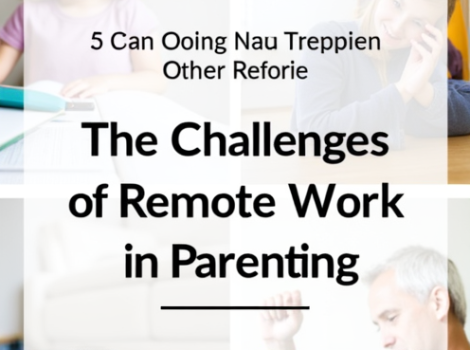The One Parenting Tip That Will Change Everything!
If you want to transform your parenting, prioritize connection with your child. Building a strong emotional bond through active listening and validation fosters a safe environment where your child feels understood. When you truly engage with their feelings and thoughts, you encourage open communication and trust. This connection not only enhances their emotional intelligence but also promotes resilience. Consistency in your interactions, alongside positive reinforcement, creates a nurturing atmosphere that supports their growth. By focusing on these principles, you’ll see profound changes in your relationship, and there’s so much more that can deepen this journey.
Key Takeaways
- Prioritize active listening to make children feel heard and understood, fostering deeper emotional connections.
- Create a safe space for open communication, enabling children to express their thoughts and feelings freely.
- Consistently model vulnerability, showing that emotional expression is acceptable and valued within the family.
- Implement daily positive reinforcement to acknowledge efforts and motivate children towards desired behaviors.
- Establish predictable routines while allowing flexibility, which builds trust and emotional stability for children.
Understanding Connection in Parenting
Connection is the heart of effective parenting, and understanding it can transform your relationship with your child. Emotional availability is crucial in fostering this connection; it allows your child to feel safe and understood. When you’re emotionally available, you’re not just physically present but actively engaged in your child’s world. This involves tuning into their feelings, validating their emotions, and responding with empathy.
Nurturing relationships are built on trust and communication. You can create an environment where your child feels comfortable expressing themselves without fear of judgment. Research shows that strong emotional connections lead to healthier social and emotional development. By prioritizing these connections, you’re not just raising a child; you’re developing a resilient individual who understands the value of relationships.
The Power of Active Listening
Building on the emotional availability you’ve fostered with your child, actively listening becomes a powerful tool in strengthening that bond. When you engage in active listening, you’re not just hearing words; you’re tuning into your child’s feelings and experiences, providing emotional validation. This practice shows them that their thoughts and emotions matter, which is crucial for their self-esteem and emotional health.
To effectively practice active listening, give your child your full attention. Make eye contact, nod, and refrain from interrupting. When they express themselves, respond empathetically; reflect back what they’ve said to show understanding. For example, you might say, “It sounds like you’re really frustrated about that.” Such empathetic responses not only validate their feelings but also encourage open communication.
Research shows that children who feel heard are more likely to develop strong emotional intelligence and resilience. By mastering active listening, you’re not just improving communication; you’re fostering a deeper connection that allows your child to feel safe in sharing their innermost thoughts. This foundation is essential for their growth and your relationship, ultimately transforming your parenting experience.
Building Trust Through Consistency
Building trust with your child hinges on the consistency you provide in your daily routines and expectations. When you set clear guidelines and follow through, it helps them feel secure and understood, which strengthens your bond. Research shows that predictable environments foster emotional stability, allowing your child to thrive.
Importance of Predictable Routines
Establishing predictable routines can significantly enhance your child’s sense of security and trust. When you create predictable schedules, your child knows what to expect, reducing anxiety and fostering a sense of stability. Research shows that consistency in daily activities helps children feel more secure, which can lead to better emotional regulation and improved behavior.
However, it’s essential to balance this predictability with routine flexibility. Life is unpredictable, and teaching your child to adapt to changes is equally important. By occasionally altering the routine, you model resilience and adaptability, skills they’ll need as they grow. For instance, if a planned activity needs to change, explain why and involve your child in the adjustment process. This helps them understand that while routines are valuable, flexibility is a crucial life skill.
Ultimately, predictable routines build trust between you and your child. They learn to rely on you for stability while also understanding that change is a part of life. By mastering this balance, you’re not just creating a structured environment; you’re equipping your child with the tools they need to navigate their world confidently. Embrace the power of routines, and watch your child’s trust in you flourish.
Setting Clear Expectations
When you set clear expectations for your child, you create a framework that fosters trust and understanding. Expectation clarity helps your child navigate their world with confidence, knowing what behaviors are acceptable and what the boundaries are. When you establish these parenting boundaries, you’re not just laying rules; you’re nurturing a secure environment where your child can thrive.
Here are three strategies to enhance expectation clarity:
-
Communicate Clearly: Use simple, direct language to express your expectations. Avoid ambiguity to minimize confusion.
-
Be Consistent: Consistency reinforces your expectations. When your child sees that you uphold the same standards, they learn to trust in your guidance.
-
Involve Your Child: Encourage your child to participate in setting some expectations. This helps them feel valued and invested in the rules.
Following Through Consistently
Consistent follow-through is crucial in parenting, as it significantly impacts your child’s sense of security and trust. When you establish clear expectations and consistently enforce them through predictable responses, you create a stable environment where your child can thrive. Research shows that children who experience consistent consequences are more likely to develop self-discipline and moral reasoning.
Imagine your child tests boundaries after you’ve set a rule. If you respond differently each time, they may feel confused or anxious. However, when you follow through consistently, your child learns that certain behaviors lead to reliable outcomes. This fosters a sense of safety, encouraging them to explore their independence while understanding the importance of accountability.
Moreover, consistent consequences help build a trusting relationship. Your child knows they can rely on you to uphold boundaries, which in turn reinforces their respect for you as a parent. When you commit to following through, you’re not just enforcing rules; you’re teaching essential life skills, like decision-making and responsibility.
In mastering this aspect of parenting, you’re equipping your child with the tools they need to navigate the world confidently, ultimately transforming your parenting journey.
Encouraging Open Communication
Fostering an environment of open communication can transform your relationship with your child, leading to deeper connections and mutual trust. When you encourage an open dialogue, it empowers your child to express their emotions freely. Here are three effective strategies to promote this vital skill:
-
Model Vulnerability: Share your feelings and thoughts with your child. This not only demonstrates emotional expression but also shows them that it’s okay to be open about their own emotions.
-
Create Safe Spaces: Establish moments where your child feels comfortable talking, whether it’s during family dinners or car rides. Ensure they know their thoughts are valued and respected, reinforcing that their voice matters.
-
Practice Active Listening: When your child speaks, give them your full attention. Acknowledge their feelings and respond thoughtfully. This practice strengthens their willingness to engage in open dialogue, fostering trust and connection.
Positive Reinforcement Techniques
Building on the strong foundation of open communication, positive reinforcement techniques can significantly enhance your child’s motivation and behavior. By employing a variety of praise, you can make your feedback more effective. Instead of generic compliments like “good job,” try to be specific about what your child did well. This approach not only acknowledges their effort but also clarifies what behavior is desirable.
Incorporating reward systems can also amplify the effects of positive reinforcement. You might create a chart where your child earns points for completing chores or displaying good behavior. Once they reach a certain number of points, they could choose a reward, whether it’s extra screen time or a fun outing. This tangible acknowledgment of their efforts fosters a sense of achievement.
Moreover, rotating your praise variety keeps it fresh and engaging. Some days, you might focus on effort, while others could highlight creativity or teamwork. Research indicates that this variability can sustain motivation over time. By consistently applying these techniques, you’ll not only improve your child’s behavior but also strengthen your relationship, creating a more harmonious home environment.
Implementing Change in Daily Life
How can you seamlessly integrate positive reinforcement techniques into your daily life? Mindful parenting involves being present and intentional with your child’s behavior. Start by recognizing the small victories throughout your day, and use these moments to reinforce positive actions. Here are three practical steps to implement change effectively:
-
Daily Reflections: At the end of each day, take a moment to reflect on your child’s positive behaviors. What did they do well? Acknowledge these moments, either mentally or in a journal, to create a habit of recognition.
-
Specific Praise: When your child exhibits desired behaviors, provide specific praise. Instead of saying, “Good job,” try, “I love how you shared your toys with your friend.” This clarity reinforces the exact behavior you want to encourage.
-
Consistent Rewards: Create a simple reward system for consistent positive behavior. It could be as easy as a sticker chart or a special outing. Consistency builds trust and reinforces the desired behavior over time.
Frequently Asked Questions
How Can I Apply This Tip to Teenagers?
Applying effective boundaries with teenagers is like building a sturdy fence; it protects your garden. Encourage their emotional intelligence by discussing feelings openly, guiding them to make choices while fostering independence. You’ll see positive growth.
What if My Child Resists Open Communication?
If your child resists open communication, try understanding their emotional barriers. Building rapport through active listening and shared interests can encourage them to express themselves, fostering trust and deeper conversations over time. Keep being patient.
Are There Specific Techniques for Active Listening?
You’ve probably faced moments where your child feels unheard. To foster better dialogue, try techniques like paraphrasing their words, maintaining eye contact, and asking open-ended questions. These active listening strategies can significantly enhance your communication.
How Do I Handle Trust Issues With My Child?
To handle trust issues with your child, engage in trust building activities and maintain open dialogue. Show understanding, listen actively, and encourage them to express their feelings. This fosters a safe environment for rebuilding trust together.
Can This Approach Work for Different Parenting Styles?
Absolutely, this approach can adapt to both authoritative and permissive styles. By balancing structure and support, you can foster trust and communication, essential for any parenting style. Tailoring it to your needs will enhance effectiveness.




